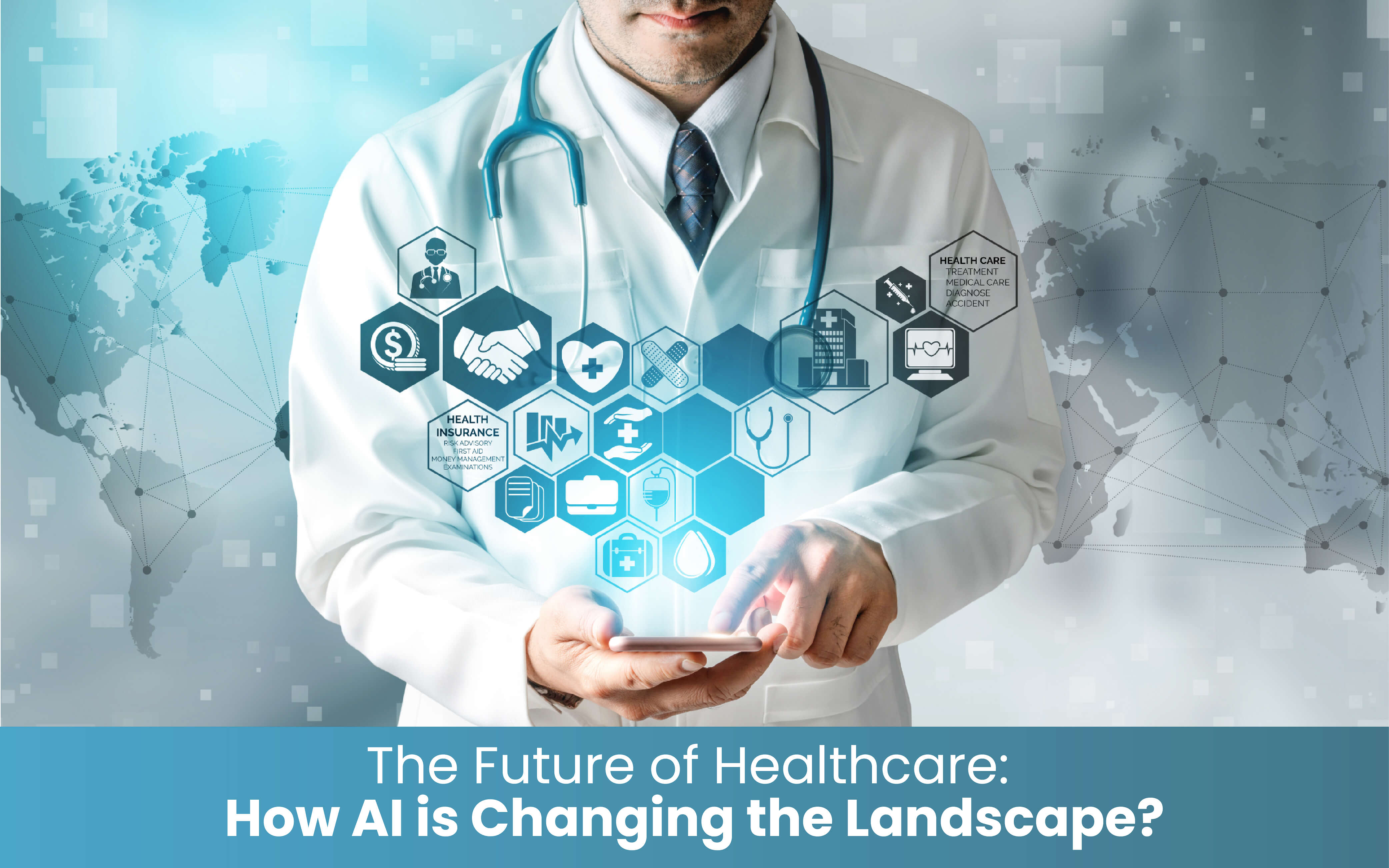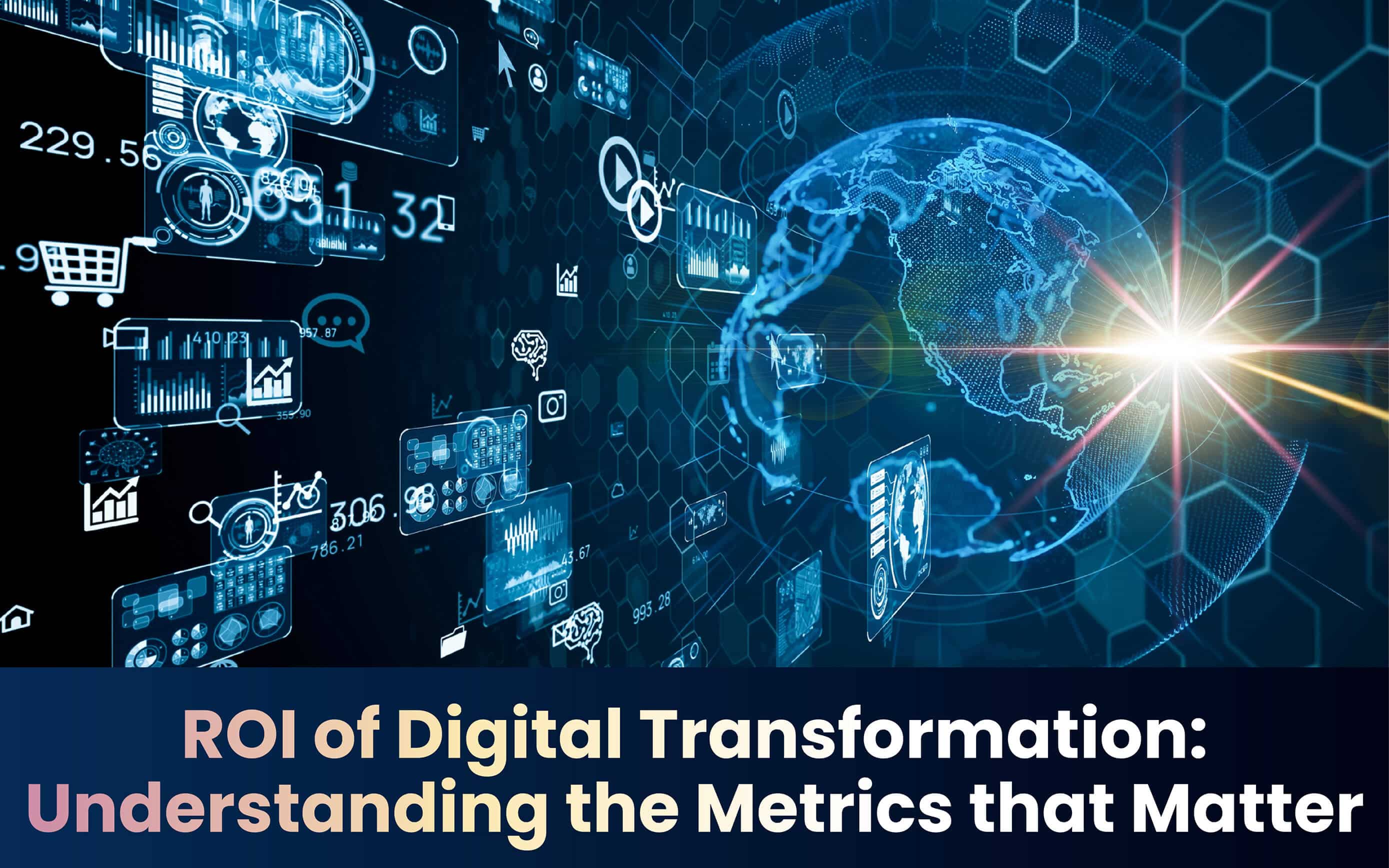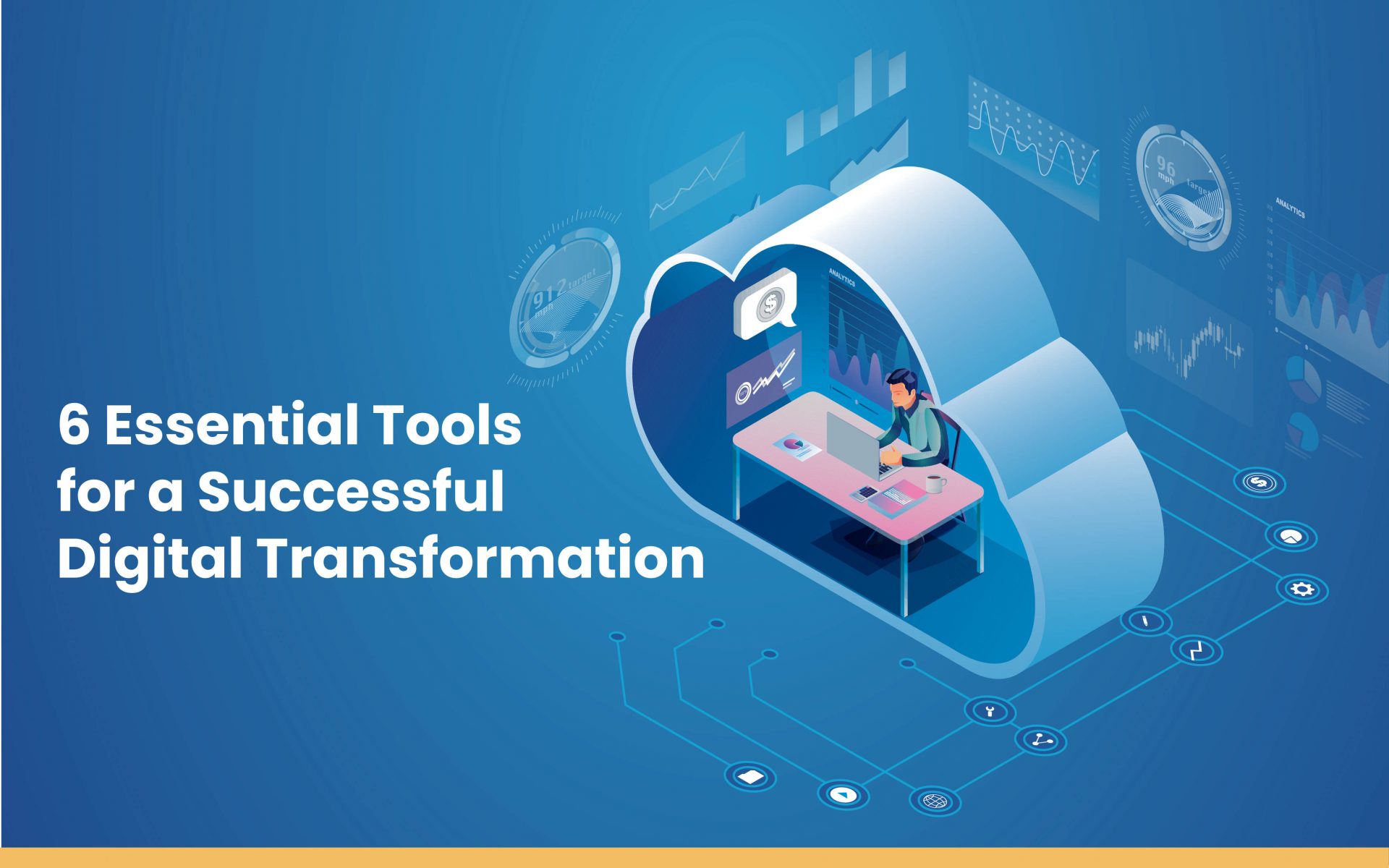Blogs
To know about all things Digitisation and Innovation read our blogs here.
Artificial Intelligence
The Future of Healthcare: How AI is Changing the Landscape?
SID Global Solutions
17 February 2023

Introduction
Healthcare is a sector that artificial intelligence (AI) has the potential to completely transform. AI has the potential to completely transform the healthcare industry, from early diagnosis to medication discovery and individualized therapies. A research by Accenture claims that healthcare uses of AI may possibly save the sector more than $150 billion by 2026. Furthermore, according to the paper, AI has the potential to enhance patient outcomes by over 30%.
Let us examine the next step in healthcare and how AI is influencing the future in this comprehensive guide. We will investigate how AI is currently being used in healthcare, as well as its possible advantages, drawbacks, and areas of improvement. We will also go through privacy and ethical issues, how AI may be incorporated into the healthcare system, and what the future holds for this technology.
Also Read: How Digital Transformation is Shaping the Future of Customer Experience?
The State of AI in Healthcare Currently
AI is already being utilized in healthcare to better clinical decision-making, improve patient outcomes, and save costs. AI has several uses in the healthcare industry, including clinical decision assistance, drug discovery, and medical imaging.
Medical Imaging: Medical imaging is one of the most exciting uses of AI in the healthcare industry. AI-powered algorithms are more accurate than human radiologists in analyzing medical pictures, making it possible to spot early indications of conditions like cancer, heart disease, and stroke.
For instance, compared to human radiologists, Google’s DeepMind AI system successfully identified breast cancer in mammography pictures 94% of the time. Similar to this, a brain scan AI algorithm created by the National Institutes of Health has 100% accuracy in spotting early indications of Alzheimer’s disease.
Drug Discovery: The process of finding new drugs is being sped up with the help of AI. A single medicine may take years to produce due to the lengthy and expensive process of drug development. The use of AI, however, can facilitate the quicker and more precise identification of possible therapeutic candidates.
For instance, a novel medication candidate for fibrosis was developed by Insilico Medicine, a business that utilizes AI to identify new pharmaceuticals, in just 46 days, as opposed to the years that it would generally take. In a similar vein, Atomwise, a business that use AI for drug development, identified two possible Ebola treatments in only one day.
Clinical Decision Support: Artificial intelligence (AI) may also offer clinical decision support, assisting healthcare professionals in making more informed decisions on patient care. To provide personalized therapy suggestions, AI systems may examine patient information and medical records.
For instance, IBM Watson Health has created a clinical decision support system driven by AI that can examine patient data and medical research to propose treatments for cancer patients. To make personalized therapy suggestions, the system considers a patient’s genetic profile, medical history, and current state of health.
Also Read: Why a Digital Mindset is Critical for Customer-Centric Digital Transformation
AI in Healthcare: Potential Benefits and Challenges
Numerous advantages of AI in healthcare are possible. Listed below are a few potential advantages:
- Greater effectiveness: AI can automate numerous time-consuming and repetitive processes, freeing up healthcare professionals to concentrate on patient care.
- Better Outcomes: there is always better treatment outcomes and patient outcomes are possible thanks to AI’s ability to diagnose illnesses sooner.
- Cost Savings: By increasing efficiency and minimizing the need for expensive medical treatments, AI can assist to lower healthcare expenses.
- Personalized medicine: AI may examine patient data to make suggestions for tailored treatments, enhancing the effectiveness of therapies.
The broad use of AI in healthcare, however, faces a number of obstacles. The following are a few of the difficulties:
- Lack of data standardization: Healthcare data is frequently walled and fragmented, making it challenging to design AI algorithms that can evaluate data from various sources.
- Regulatory issues: The application of AI in healthcare is subject to regulatory monitoring, which can impede the creation and use of new technology.
- Ethical considerations: There are ethical issues with the use of AI in healthcare, including privacy issues, prejudice, and the possibility that automation may take the place of human healthcare practitioners.
- Integration issues: It might be difficult for healthcare companies to invest significantly in infrastructure and training when integrating AI into the healthcare system.
- Accessibility issues: There is a chance that AI-powered healthcare will only be available to those who can afford it, which might result in unequal access to care and outcomes.
Also Read: 6 Essential Tools for a Successful Digital Transformation
How AI Could Be Applied to the Healthcare System
Healthcare firms must adopt a strategic strategy that incorporates cooperation between medical professionals, data scientists, and tech suppliers in order to integrate AI into the healthcare system. Healthcare firms can follow these steps to incorporate AI into their systems:
- Construct a plan: A clear plan for incorporating AI into their systems must be developed by healthcare institutions. The development of AI applications should be prioritized in accordance with the areas where AI can have the most impact.
- Address data quality and standardization: Healthcare companies must take steps to improve the consistency and quality of their data so that AI algorithms can assess information from various sources.
- Invest in people and infrastructure: The integration of AI into the healthcare system calls for a sizable investment in both. Healthcare firms must spend money on the data storage, software, and technology required to enable AI applications. Data scientists and AI specialists who can create and manage these apps must also be hired.
- Work in collaboration with technology providers: To create and execute AI applications, healthcare institutions should work together with technology providers. These companies can offer knowledge, assistance, and access to cutting-edge technology for creating AI applications.
- Address the ethical and legal issues: involved in the use of AI in healthcare. Healthcare organizations need to address the ethical and legal issues involved in the use of AI in healthcare. They should make sure that their AI applications respect patient privacy, and are fair, and transparent.
Privacy and Ethical Issues
The application of AI in healthcare raises a number of ethical and privacy issues. These consist of:
- Bias: The quality of AI systems depends on the data they are trained on. The algorithms will also be prejudiced if the data is skewed. Healthcare institutions must make sure that their data is impartial and representative.
- Patient privacy: Healthcare businesses must make sure that the privacy of their patients is protected by their AI applications. This includes making sure that patient information is encrypted and only available to authorized staff
- Informed Consent: Before exploiting patient data for AI applications, healthcare companies must have the patient’s informed consent. Patients should be given the chance to opt-out and be informed about how their data will be utilized.
- Transparency: Healthcare institutions must make sure that the AI applications they use are open and clear. Patients should be able to comprehend how the suggestions made by the AI system were reached.
- Human supervision: Healthcare institutions should be careful to combine the deployment of AI technologies with human monitoring. The decision-making process and final say in patient care should be shared among healthcare professionals.
Also Read: How Low-Code Software Tools are Fueling Digital Transformation?
The Role of AI in Healthcare in the Future
Healthcare AI has a bright future. AI will develop into a more potent and versatile force as technology advances. Here are some probable advancements in AI healthcare in the future:
- Personalized medicines: AI will be able to assess patient data in real-time and make individualized therapy suggestions. This will increase the effectiveness of therapies and lower the chance of negative side effects.
- Virtual healthcare: AI-powered virtual assistants will be able to deliver healthcare services remotely. As a result, healthcare practitioners will have less work to do and access to care would be improved.
- Continuous monitoring: AI-powered sensors will be able to track the health of patients in real-time, detecting illnesses early and enhancing patient outcomes.
- Precise medicine: AI will be able to examine genetic data to determine the best therapies for specific individuals using precision medicine.
- Predictive Analytics: AI will be able to examine patient data to anticipate the risk of illnesses and find early warning signals, a process known as predictive analytics.
Conclusion
AI is revolutionizing the healthcare sector, and its influence is only going to increase in the coming years. Healthcare companies may take action to address these issues and reap the benefits of AI-powered healthcare, even though there are obstacles to its integration into the healthcare system. Healthcare businesses may create and execute AI applications that enhance patient outcomes and save costs by addressing data quality and standards, investing in infrastructure and expertise, and working with technology suppliers. But it’s critical to address the ethical and privacy issues surrounding the use of AI in healthcare, including openness, patient privacy, and prejudice.
With the potential for customized medicine, virtual healthcare, continuous monitoring, precision medicine, and predictive analytics, the future of AI in healthcare is bright. We will probably see even more ground-breaking uses of AI in the healthcare sector as the technology develops. AI is influencing healthcare and will only have a greater influence in the future. While there are obstacles to incorporating AI into the healthcare system, healthcare companies may take efforts to get over them and use AI’s capacity to alter the healthcare sector and enhance patient outcomes.









